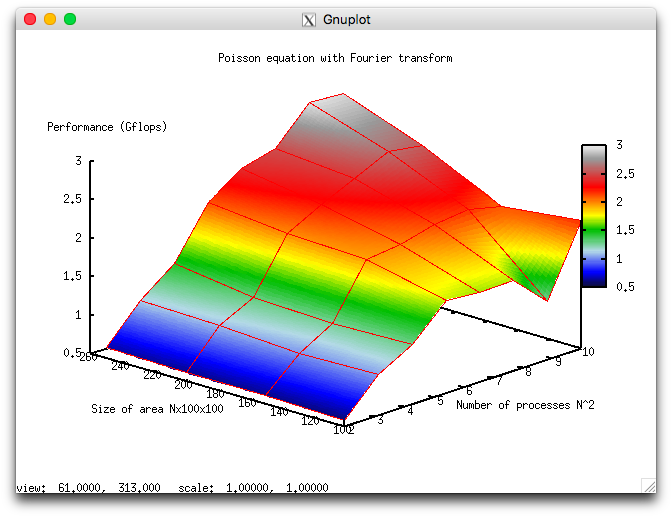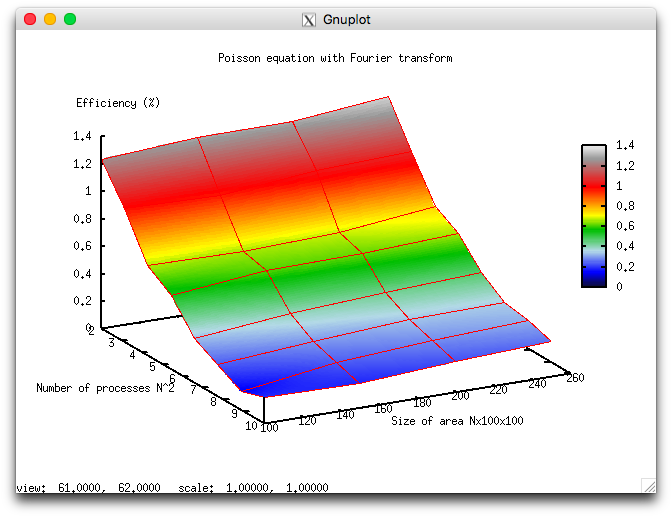Poisson equation, solving with DFT, scalability
Primary author of this description: V.M.Stepanenko, E.V.Mortikov.
Contents
1 Links
For the experiments, we used the implementation of the algorithm for solving the Poisson equation by the discrete Fourier transform.
2 Locality of data and computations
2.1 Locality of implementation
2.1.1 Structure of memory access and a qualitative estimation of locality
2.1.2 Quantitative estimation of locality
3 Scalability of the algorithm and its implementations
3.1 Scalability of the algorithm
3.2 Scalability of of the algorithm implementation
The variable start-up parameters of this implementation and their ranges are as follows:
- the number of processors is a squared integer in the range [4 : 100];
- the domain size varies in the range [100x100x100 : 250x100x100] with the step 50x100x100.
The experiments resulted in the following range for the implementation efficiency of this algorithm:
- the minimum efficiency is 0,132%;
- the maximum efficiency is 1,34%.
The following two figures show how the performance and efficiency of this implementation depend on the variable start-up parameters.
These results are in good qualitative agreement with the estimates given in the preceding section. For instance, one can see from fig. 8 that the scalability of the algorithm improves with the growth of [math]N[/math]; that is, the performance improves faster with the growing number of cores. This is consistent with the fact that [math]\alpha[/math] decreases with the growth of [math]N[/math], although the dependence revealed by the expression [math]\alpha=12/(6\log_2 N+1)[/math] is considerably more weak. On the whole, the scalability of the algorithm is rather weak. Suppose that the domain has the size 250х100х100. When the number of cores increases by a factor 25 (from 4 to 100), the performance of calculations increases only sixfold.

